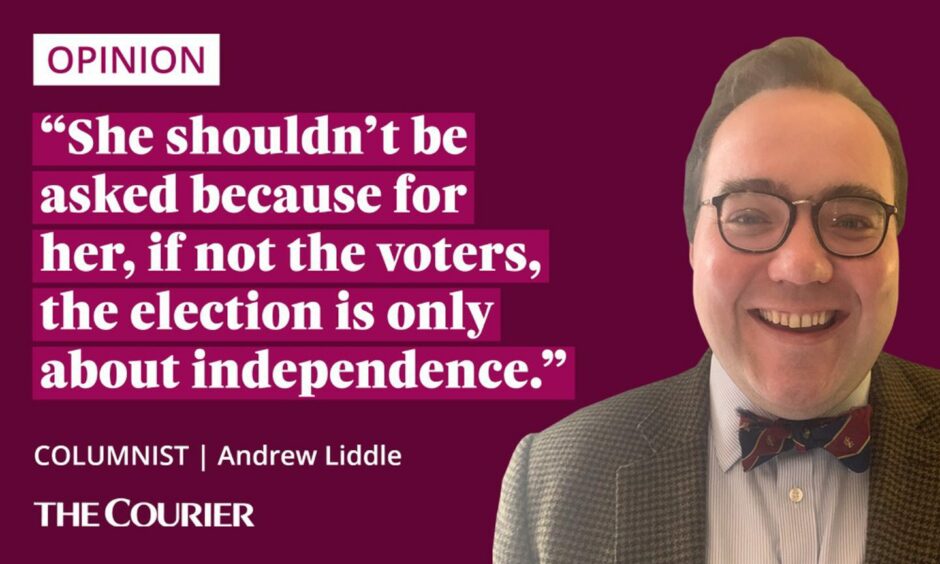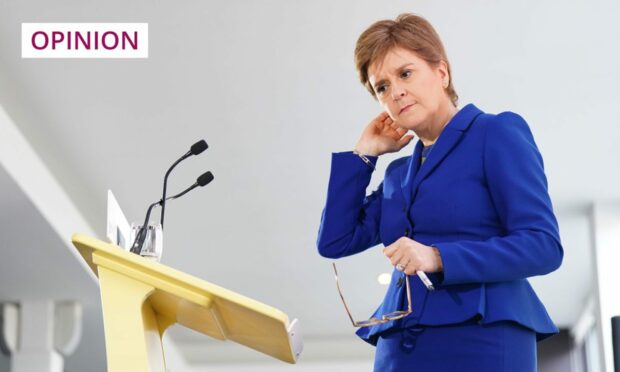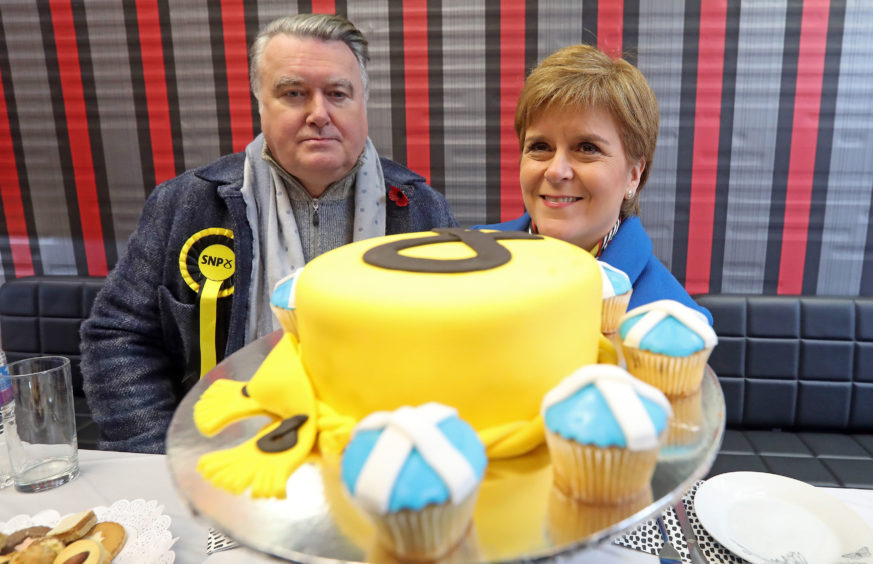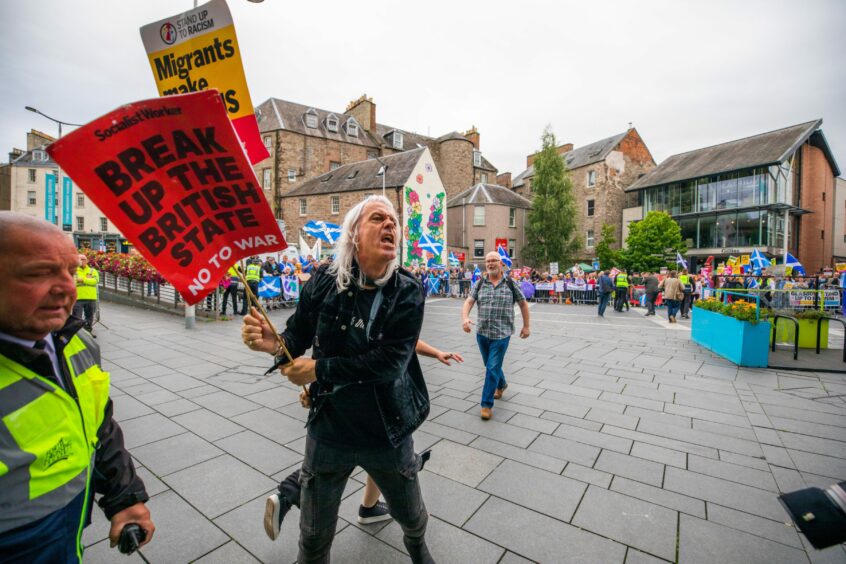If Nicola Sturgeon is going to exclude the issues that matter to voters at the general election, it is only reasonable that the SNP is excluded from the flagship moments of that election.
This is not to argue that Sturgeon should be denied the right to campaign. Or that the SNP should be barred from standing candidates.
It does not mean the SNP should be denied the requisite airtime for party political broadcasts. Or the opportunity to leaflet and canvass.
But it does mean that Sturgeon should be denied a platform to debate issues she believes are irrelevant to voters – most notably in the TV election debates that can often define, or redefine, a party’s electoral fortunes.

This is not a partisan point, but one of balance and impartiality.
At every election, a party puts forward a manifesto containing policies it wants to enact should it win that election.
Sturgeon and the SNP know this. How many times have we heard a new mandate for a second independence referendum has been secured by a single line in a manifesto running to hundreds of pages?
And yet, with her “de facto referendum” general election proposal, Sturgeon has effectively turned the SNP into a single-issue party, the UKIP of Scotland.
The SNP now only has a one-word answer to a question that no one is asking.
Let Sturgeon talk independence at election debates, but nothing else
If Nationalists try to dismiss this as hyperbole, they need only listen to the Ochil and South Perthshire MP, John Nicolson, who in a recent appearance on Times Radio could not even say if the SNP would have a manifesto at the next election.
Others argue it may be one line.
More still – albeit privately – recognise Sturgeon’s plan is meaningless and illegitimate.
Amid such disarray and delusion, Sturgeon has surely forfeited the right, if not the ability, to debate all the other issues that actually matter to voters.
Of course, given the scale of the SNP’s – albeit diminishing – support, as well as the size of its parliamentary party, broadcasters may find it difficult to exclude Sturgeon entirely.
And that is even before the Braveheart brigade descend on Pacific Quay to blame others for an injury that is entirely self-inflicted.
But in that case, she can be invited to a TV debate, but not involved.
What’s her view on the cost-of-living crisis, the war in Ukraine or the energy price cap?
She shouldn’t be asked because for her, if not the voters, the election is only about independence – a topic she can debate to her heart’s content when it briefly comes up.
If this sounds unfair, it is entirely in keeping with recent polling, which suggests independence remains a low priority issue for Scottish voters.
Sturgeon can still back down on ‘de facto referendum’ pledge
Those of a more emotional Nationalist persuasion might claim a Sturgeon monologue on independence will be enough to get the SNP over the line. But such a view is delusional at best.
Sturgeon’s strength has always come from her position as the most credible anti-Conservative candidate, not the most pro-independence candidate.
This is a surprise from the SNP.
On @TimesRadio I asked an SNP MP whether the SNP would even have a manifesto at the next election.
“I don’t know” was his answer. Listen here: pic.twitter.com/gV65Q6tGN8
— Jim Murphy (@glasgowmurphy) November 27, 2022
Her success in TV debates in 2015 and 2019 – first as an anti-austerity talisman, then as an anti-Brexit champion – came amid a Labour leadership vacuum.
While Sturgeon would reveal a cynical core beneath an idealistic veneer by trying to use both results as a mandate for a second independence referendum, those victories were rooted in her being the strongest opponent of damaging and unpopular Conservative policies.
Sturgeon, of course, has time to change tack.
The general election is some way off and an SNP special conference next month offers the opportunity for her to water down her “de facto referendum” plan.
But, if not, we should all remember her exclusion is her choice and – for once, at least – she should live with the consequences.
Andrew Liddle is a former chief reporter for The Courier and political correspondent for The Press and Journal. His books include Cheers, Mr. Churchill! Winston in Scotland and Ruth Davidson and the Resurgence of the Scottish Tories.












